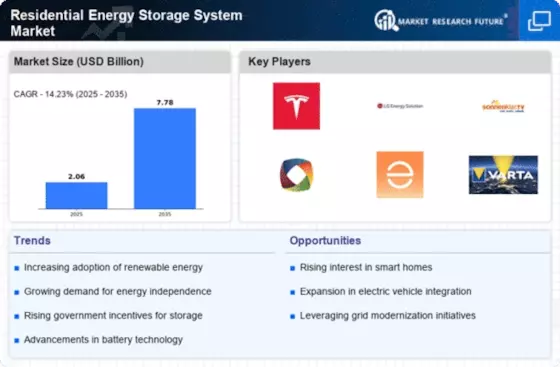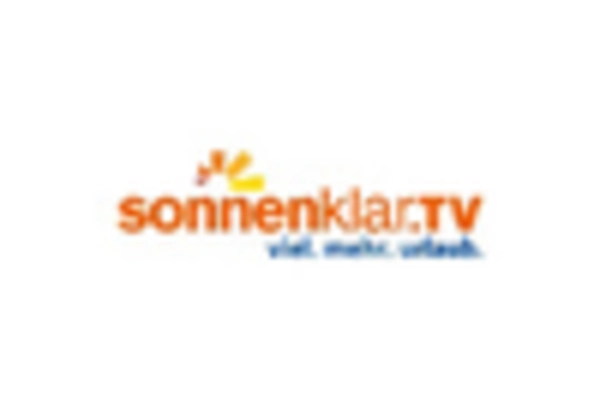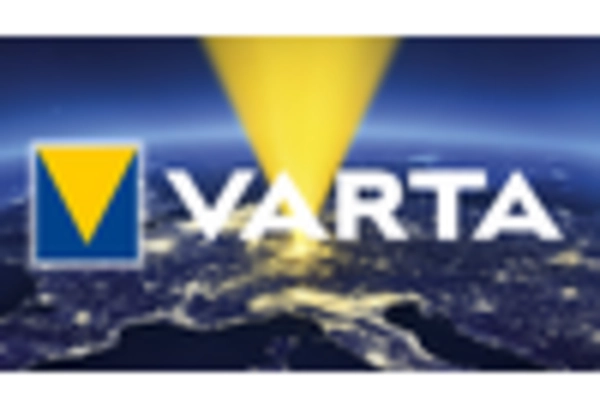Market Share
Europe Residential Energy Storage System Market Share Analysis
In the dynamic landscape of the European Residential Energy Storage System (RESS) market, companies employ various strategies to carve out their market share. One prevalent approach is differentiation, where companies emphasize unique features or benefits to distinguish their offerings from competitors'. For instance, some companies focus on providing modular systems that allow for easy scalability, appealing to customers who prioritize flexibility and future expansion. Others differentiate through advanced technology, such as smart energy management software or integration with renewable energy sources, catering to environmentally conscious consumers seeking sustainable solutions. By highlighting these distinctive aspects, companies aim to capture a segment of the market that aligns with their unique value proposition, thereby solidifying their market share.
Another strategic avenue is cost leadership, wherein companies strive to become the most cost-efficient option in the market. This involves optimizing production processes, sourcing materials economically, and streamlining distribution channels to minimize expenses. By offering competitive pricing without compromising quality, companies attract price-sensitive consumers who prioritize affordability. Additionally, cost leadership strategies may involve leveraging economies of scale to drive down per-unit costs, allowing companies to maintain profitability while capturing a larger share of the market. Through relentless cost optimization efforts, companies position themselves as the go-to choice for budget-conscious consumers, thereby bolstering their market share.
Furthermore, market segmentation plays a crucial role in positioning strategies within the European RESS market. Companies analyze the diverse needs and preferences of consumers across different regions and demographic segments to tailor their offerings accordingly. For example, companies may develop specialized products or marketing campaigns targeting specific consumer segments, such as urban dwellers versus rural homeowners or early adopters versus mainstream consumers. By understanding the nuances of various market segments, companies can effectively allocate resources and customize their strategies to resonate with different target audiences, thereby maximizing their market share within each segment.
Additionally, partnerships and alliances can be instrumental in expanding market share within the European RESS market. Collaborating with complementary companies, such as solar panel manufacturers or energy utilities, enables RESS providers to tap into existing customer bases and distribution networks. For instance, a partnership with a solar panel company may allow a RESS provider to offer bundled solutions that combine solar energy generation with energy storage, appealing to customers seeking comprehensive renewable energy solutions. By leveraging synergies with strategic partners, companies can accelerate market penetration and solidify their position within the European RESS market.
Moreover, continuous innovation is essential for maintaining and expanding market share in the rapidly evolving European RESS market. Companies invest in research and development to improve product performance, enhance energy storage capacity, and introduce innovative features that address emerging consumer needs. Whether it's developing more efficient battery chemistries, designing sleeker and more compact storage units, or integrating artificial intelligence for predictive energy management, innovation drives differentiation and enables companies to stay ahead of the competition. By continuously pushing the boundaries of technology and innovation, companies can capture market share by offering cutting-edge solutions that resonate with forward-thinking consumers.
Market share positioning strategies within the European Residential Energy Storage System market are multifaceted and dynamic, encompassing differentiation, cost leadership, market segmentation, partnerships, and innovation. By employing these strategies strategically and adapting to evolving market dynamics, companies can strengthen their market share and sustain long-term success in the competitive European RESS market landscape.



















Leave a Comment